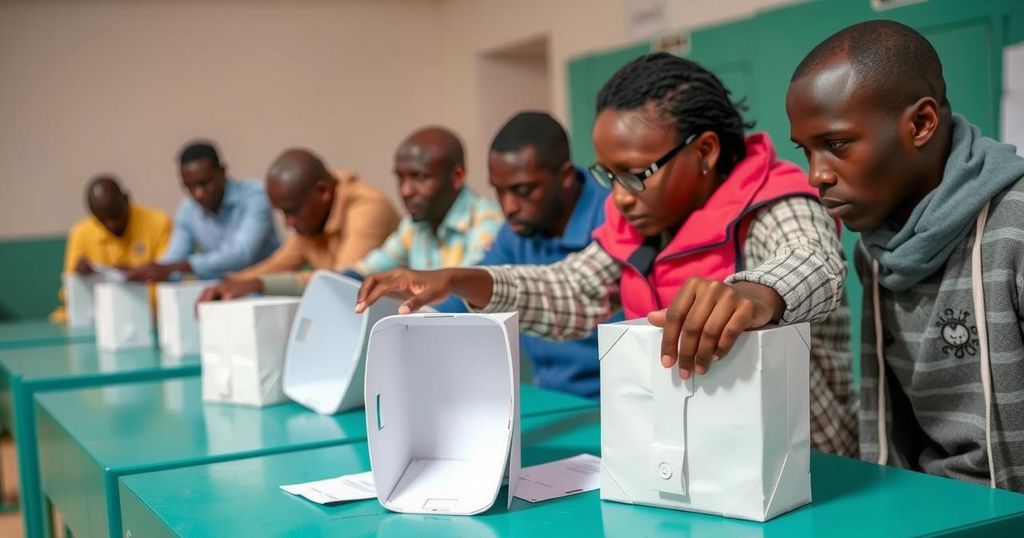Voting began in Chad amid opposition calls for a boycott, denouncing the process as untrustworthy. While military personnel and nomadic tribes participated early, many ordinary citizens remain indifferent, fearing no change. The elections occur against a backdrop of insecurity and longstanding criticisms of corruption under the ruling party’s influence, raising serious questions about the future of democracy in the country.
Voting has commenced in Chad as President Mahamat Idriss Deby Itno positions these elections as a pivotal step towards democracy. However, opposition parties, viewing the electoral process as a mere extension of the ruling party’s dominance, have advocated for a boycott. While members of the military and nomadic tribes were asked to vote on Saturday, most of the nation is expected to participate on Sunday to elect a national parliament, regional assemblies, and local councils, with polls operational from 6 a.m. to 5 p.m. local time.
Reports from Al Jazeera indicate that many Chadians exhibit indifference towards the elections, expressing doubts about any potential changes. Concerns about high living costs and widespread corruption overshadow political engagements. The main opposition party, Transformers, has issued a directive via social media urging citizens to abstain from voting, labeling the elections as illegitimate.
Initial reports suggested that by midday on Saturday, approximately 45 percent of the nomadic population and local soldiers had already participated in the voting process. An election official confirmed that the military had voted without incident, yet the legitimacy of the broader electoral process remains in question due to the perceived bias of the electoral management body, largely seen as loyal to the ruling party.
The elections unfold amidst ongoing security issues, particularly attacks from the Boko Haram militant group, and following the termination of a military agreement with France. While these elections are touted by President Deby’s administration as a crucial step towards a democratic transition, analysts argue that they disproportionately favor the ruling Patriotic Salvation Movement.
Since assuming power in 2021 after his father’s death, Deby has faced scrutiny regarding the legitimacy of his rule. This electoral cycle notably follows a five-year mandate won in an election denounced by opposition figures as fraudulent, leaving many concerned about the future of democracy in Chad.
Chad is a nation grappling with political unrest and security challenges, having long been under the stringent control of its leaders. The recent death of Idriss Deby Itno, who ruled for 30 years, led to a transitional government led by his son, Mahamat Idriss Deby Itno. The current elections are seen as an essential milestone towards democracy; however, pervasive skepticism regarding the fairness of the electoral process persists. The significant boycott by opposition factions reflects broader discontent with governance in Chad, where issues of corruption and socioeconomic difficulties dominate public discourse.
The onset of voting in Chad highlights a pivotal moment in the country’s political landscape, characterized by a notable boycott from opposition parties. Despite official narratives promoting a transition to democracy, widespread public apathy and allegations of electoral manipulation signal deep-set concerns regarding governmental legitimacy and the integrity of the electoral process itself. As the situation develops, the repercussions of these elections will likely resonate within Chad’s socio-political framework for years to come.
Original Source: www.aljazeera.com






